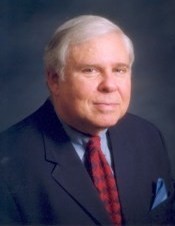Bundle: Processes of Constitutional Decisionmaking: Cases and Materials , Eighth Edition with PracticePerfect Constitutional Law I and PracticePerfect Constitutional Law II
Series / Aspen Bundle Series
Bundle: Processes of Constitutional Decisionmaking: Cases and Materials , Eighth Edition with PracticePerfect Constitutional Law I and PracticePerfect Constitutional Law II
Book length
1950 pages
Publication Date
Edition
Eighth Edition
Description
This bundle contains:
Processes of Constitutional Decisionmaking: Cases and Materials, Eighth Edition
Sanford Levinson, Jack M. Balkin, Akhil Reed Amar, Reva B. Siegel, Cristina M. Rodriguez
Connected eBook with Study Center (Digital) ISBN: 9781543857139
Connected eBook with Study Center (Hardcover) ISBN: 9781543838558
This hugely successful materials-and-problems book is acclaimed for its textual clarity, evenhanded perspective, and contemporary, up-to-date character. Easily distinguished from other property casebooks for its plain-language descriptions of legal doctrine; explanations of the social ramifications of our system of property law; emphasis on statutory and regulatory interpretation; comprehensive treatment of public accommodations and fair housing law, tribal property issues, and property in human bodies; and use of the problem method to teach legal reasoning and lawyering skills. Streamlined for more accessible teaching, the Eighth Edition has been thoroughly updated to reflect significant changes in the law of property, including in responses to the Covid-19 pandemic, in intellectual property, housing discrimination, regulatory takings, and more.
with
PracticePerfect Constitutional Law I
Kathleen M. Burch, Steven D. Schwinn
ISBN: 9781543851991
PracticePerfect is a visually engaging, interactive study aid designed to help students review core course topics and test their ability to recall and correctly apply the law. PracticePerfect contains a library of animated videos that explain course topics through hypothetical situations, quizzes to test knowledge and understanding, and progress trackers so students can identify their strengths and weaknesses in the course. Designed to work with all major casebooks, PracticePerfect is the ideal study companion for today's law students.
Processes of Constitutional Decisionmaking: Cases and Materials, Eighth Edition
Sanford Levinson, Jack M. Balkin, Akhil Reed Amar, Reva B. Siegel, Cristina M. Rodriguez
Connected eBook with Study Center (Digital) ISBN: 9781543857139
Connected eBook with Study Center (Hardcover) ISBN: 9781543838558
This hugely successful materials-and-problems book is acclaimed for its textual clarity, evenhanded perspective, and contemporary, up-to-date character. Easily distinguished from other property casebooks for its plain-language descriptions of legal doctrine; explanations of the social ramifications of our system of property law; emphasis on statutory and regulatory interpretation; comprehensive treatment of public accommodations and fair housing law, tribal property issues, and property in human bodies; and use of the problem method to teach legal reasoning and lawyering skills. Streamlined for more accessible teaching, the Eighth Edition has been thoroughly updated to reflect significant changes in the law of property, including in responses to the Covid-19 pandemic, in intellectual property, housing discrimination, regulatory takings, and more.
with
PracticePerfect Constitutional Law I
Kathleen M. Burch, Steven D. Schwinn
ISBN: 9781543851991
PracticePerfect is a visually engaging, interactive study aid designed to help students review core course topics and test their ability to recall and correctly apply the law. PracticePerfect contains a library of animated videos that explain course topics through hypothetical situations, quizzes to test knowledge and understanding, and progress trackers so students can identify their strengths and weaknesses in the course. Designed to work with all major casebooks, PracticePerfect is the ideal study companion for today's law students.
and
PracticePerfect Constitutional Law II
Kathleen M. Burch, Steven D. Schwinn, Doni Gerwirtzman
ISBN: 9798886145434
Read More
Professor Materials
Please sign in or register to view Professor Materials. These materials are only available for validated professor accounts. If you are registering for the first time, validation may take up to 2 business days.
Product Information
Edition
Eighth Edition
Publication date
Copyright Year
2023
Pages
1950
Connected eBook Print + Digital Bundle
9798889067634
Digital Bundle
9798889067665
Subject
Constitutional Law
Are you an educator?
Publication date
Publication Date
Are you an educator?
Bundle: Processes of Constitutional Decisionmaking: Cases and Materials , Eighth Edition with PracticePerfect Constitutional Law I and PracticePerfect Constitutional Law II
Connected eBook Print + Digital Bundle
Are you an educator?
Publication date
Publication Date
Are you an educator?
Bundle: Processes of Constitutional Decisionmaking: Cases and Materials , Eighth Edition with PracticePerfect Constitutional Law I and PracticePerfect Constitutional Law II
Digital Bundle
Are you an educator?




